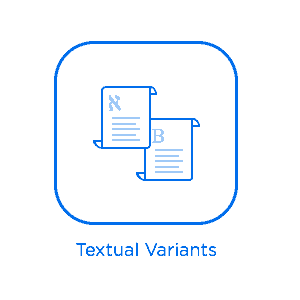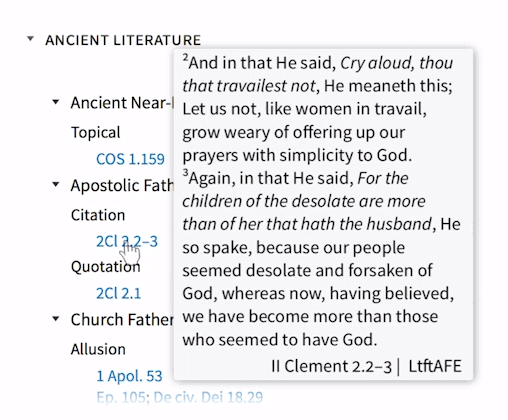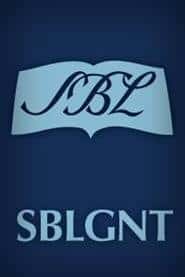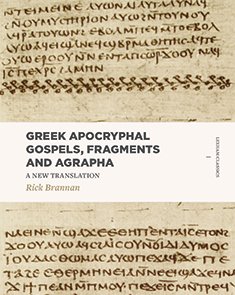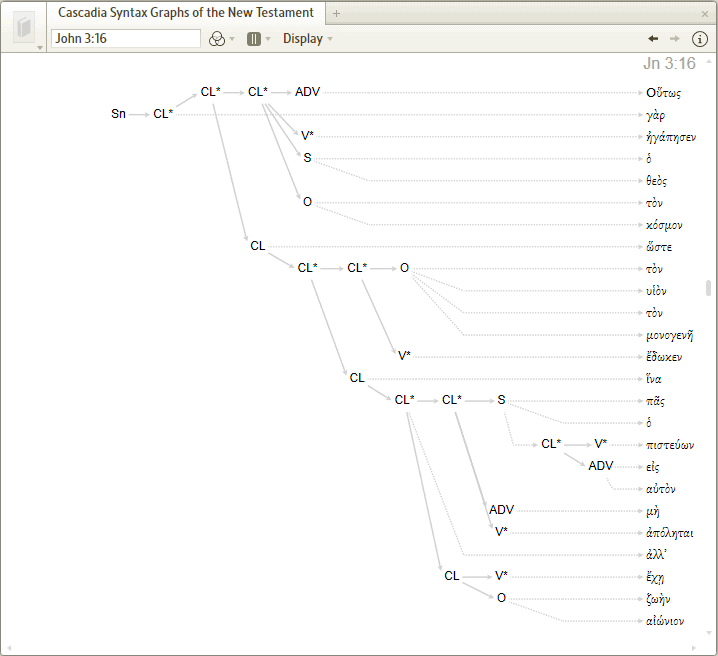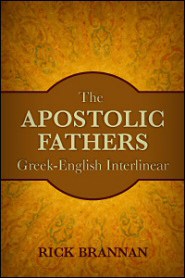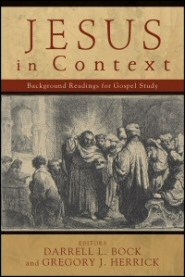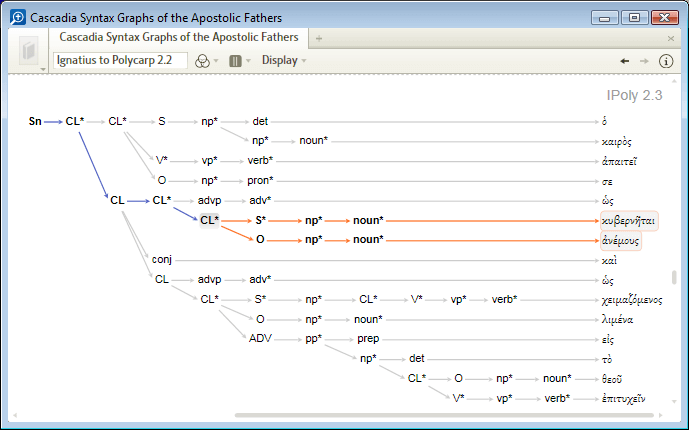Why does the NKJV have Acts 8:37? And why doesn’t the ESV include the same content? This article offers an answer—and how to examine the evidence yourself and come to your own conclusion.
Whether you’ve been using Logos Bible Software for weeks or decades, chances are good that you’ve used a resource Rick Brannan has worked on. He’s helped to create resources like SBL Greek New Testament, the Lexham English Septuagint, the Apostolic...
Hilary of Poitiers (around AD 315–367/8) became bishop of Poitiers, in western France, in AD 350. Soon after, he was drawn into disputes over Arianism, the heretical teaching that Jesus was created by God the Father. Hilary was condemned in 356 and...
Over 70 volumes of the Oxyrhynchus Papyri (P.Oxy.) have been published in print. These volumes are expensive and typically available only in well-stocked libraries. But the first 15 volumes (1898–1923), covering over 1,800 ancient papyri retrieved...
Using a commentary like you use a lexicon — it’s not really a far-fetched idea. There are scads of context-sensitive discussions of Greek and Hebrew words locked away in commentaries. As a matter of fact, Ceslas Spicq’s justly famous (and immensely...
An earlier post discussed how systematic theologies use the Bible to discuss the classic topics of systematic theology. We looked at the most frequent references found in contexts discussing the primary topics of systematic theology. It was a...
So you want to write a systematic theology? Then you have to refer to certain passages—at least, if you want to be consistent with past works of systematics, not to mention the biblical witness itself. Many configurations of Logos now include a...
Most guides to exegesis include an important step in pursuing the exegesis of a given passage: establishing the text. This is the exegetical step where textual variation is taken into account, and one notes and weighs the variations in a passage to...
Good exegesis starts with the text. But it doesn’t end there. You rightly examine lexicons, commentaries, and all sorts of other references as you wrestle with a text. But what did the ancients say about the text you’re wrestling with? How was this...
Earlier this year, Logos published a two-volume set on the Greek Apocryphal Gospels, including material on various papyri and parchment fragments, as well as agrapha. One volume is subtitled Introductions and Translations. It has . . . wait for it ...
When Logos released The Greek New Testament: SBL Edition (SBLGNT) in 2010, we included an apparatus that provided information on which editions of the Greek New Testament differ from the reading found in the SBLGNT. The apparatus included readings...
I'm really excited about the upcoming release of the Greek Apocryphal Gospels, Fragments, and Agrapha collection, which was announced 11 months ago on the Logos blog. While this was originally intended to be a collection of morphologically analyzed...
One of the new resources released with Logos 5 (and available in collections from Bronze up, and also in the Minimal Crossgrade) is the Lexham English Septuagint. And now we’re happy to inform you that an associated resource, the Lexham English...
Are you familiar with the movie The Matrix? I’m not so worried about the plot of the movie here; instead, I’m wondering about a particular effect created in the film: time essentially stopped or slowed incredibly, but the main character (“Neo,”...
I know. I can hear the groaning already. "Greek Apocryphal Gospels? Rick, I thought we were done hearing about that. Really, why keep bringing it up? This stuff isn't the Bible, so why mention it so often?" True, it isn't the Bible. But that doesn't...
As the Greek Apocryphal Gospels, Fragments and Agrapha project is now in the "Under Development" stage of the pre-pub process, and since I've done some work on it, I thought it would be fun to write about some of the material. Most folks aren't...
Since the Greek Apocryphal Gospels, Fragments and Agrapha project made it to the "Under Development" stage of the Pre-Pub process, I've been spending part of my time working on it. Specifically, I've been working on getting transcriptions of all of...
The last week of Jesus’ life is also known as Holy Week. On the first day of the week prior to Jesus’ crucifixion, he and his disciples entered Jerusalem and spent the night in Bethany (Mark 11:11). Jesus knew that he would be arrested...
You may have seen an announcement for a new Pre-Pub called Greek Apocryphal Gospels, Fragments and Agrapha. Yes, that's a mouthful. But what are they? And are these things actually useful to me in my study? I think they are, and I'm pretty excited...
We have wrapped up work on the reverse interlinear for the NIV 2011 New Testament. If you have Logos 4 installed, a license for the NIV 2011 with reverse interlinears, and are set up to receive updates, the update should be automatic. The reverse...
One of the Pre-Pubs I’m most anticipating has the misfortune of being an extremely big project of seemingly narrow interest. I’m talking about the Cascadia Syntax Graphs of the Septuagint, which has been on Pre-Pub since mid-2010, and at...
One reason I wanted to make the Apostolic Fathers Interlinear was because the writers of these documents used the Old Testament, New Testament, and even some portions of apocryphal/deuterocanonical books. These guys knew Scripture, and they used...
In my previous post about the Apostolic Fathers, I gave an example of how the Apostolic Fathers can be helpful when considering language/phrasing that sounds a little unusual. They can also be helpful in understanding words and concepts that don't...
So why would someone bother spending their time making an interlinear of something that isn't part of the canon, like the Apostolic Fathers Greek-English Interlinear? As I wrote in a previous post (The Importance of Historical Context), there came a...
Why a blog post about Darrell L. Bock and Gregory J. Herrick's book Jesus in Context: Background Readings for Gospel Study? If you're at all like me, there comes a point in your reading of the New Testament where you start to realize that the world...
Have you had some instruction in Greek? A year in seminary or college awhile back, or you worked through a grammar on your own or in a group? Or you've just picked up stuff as you've studied? Maybe you feel pretty good about what you've learned so...
Most folks who have been around Logos for awhile know that I'm pretty excited about the writings of the Apostolic Fathers. I mean, I am spending a large chunk of my "free" time working on an interlinear of the Greek portions of these writings (it's...
Understanding the way that the Old Testament is used in the New Testament is an important part of Bible study. When you’re studying a New Testament passage that quotes the Old Testament, you need to know the reference and study further to...
Textual apparatuses can be excellent tools. They do an incredible job of densely packing a large amount of information into a small portion of the printed page. They contain information that is incredibly valuable to the specialist. But the compact...
Logos Bible Software has partnered with the Society of Biblical Literature (SBL) to produce a new, critically edited edition of the Greek New Testament called The Greek New Testament: SBL Edition, abbreviated as SBLGNT and also known as the SBL...








